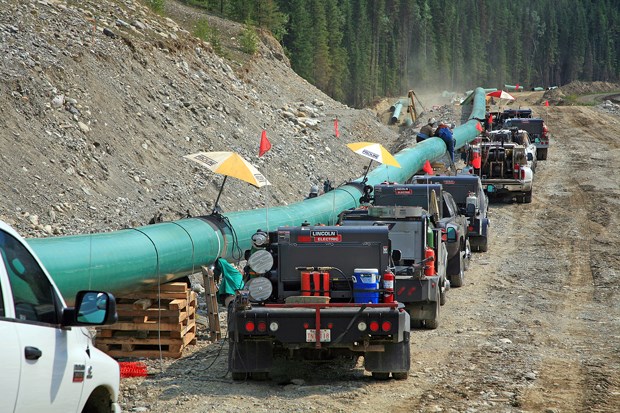Burnaby wants an apology from Saskatchewan’s attorney general.
Greg McDade, a lawyer with the city, said Don Morgan was “misinformed” when he made comments about Kinder Morgan’s Trans Mountain expansion project on Nov. 3.
The attorney general was quoted in a government press release as saying, “we are disappointed the City of Burnaby is deliberately slowing down an important project for an industry that is only now recovering from the severe slowdown caused by low oil prices.”
Kinder Morgan is accusing the city of stalling construction of the $7.4-billion project by not issuing zoning and tree-cutting permits. It has asked the National Energy Board to intervene and allow it to begin work. (The NEB has yet to respond to the request.)
Saskatchewan and Alberta have applied as interveners in the matter, in support of Kinder Morgan, while British Columbia has vowed to “use every tool available to defend B.C.’s coast.”
An affidavit from Michael Davies, Kinder Morgan’s vice-president of operations, states staff at the City of Burnaby have been “too busy” and have told the company they don’t have the resources to process all preliminary plan approvals simultaneously.
“The City of Burnaby regulatory process has been applied in good faith, as the evidence will readily show in the motion before the NEB. We believe you owe the City of Burnaby and its professional staff an apology,” McDade said in a letter sent to Morgan on Nov. 6.
The lawyer said it was “highly inappropriate” for Morgan to make public statements that “pre-judge” a key issue before a court or regulatory tribunal.
“Such statements may have the effect of influencing that court. The role of an attorney general is to be impartial in the administration of justice,” he wrote. “We would ask that you reconsider the propriety of your comment, and withdraw it on the record.”
A request for comment from Morgan’s office has not been returned.
In the press release, the attorney general said Saskatchewan has consistently taken the position that "once an interprovincial pipeline has been approved by the federal government, provinces and municipalities should not be able to interfere.”



